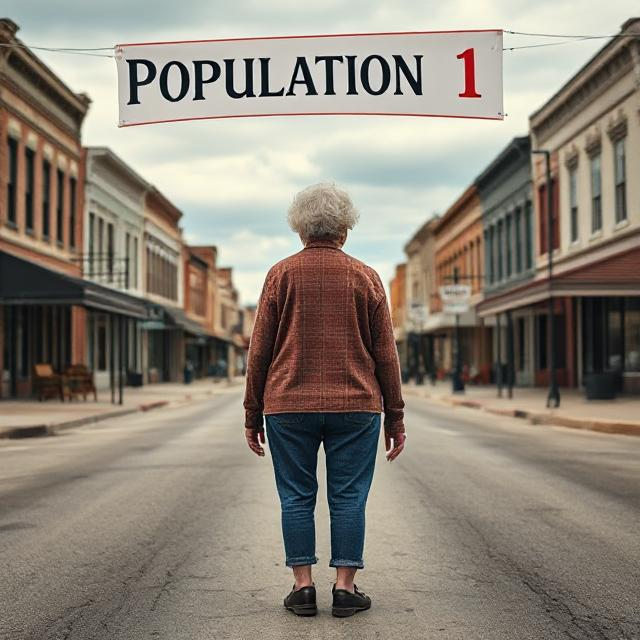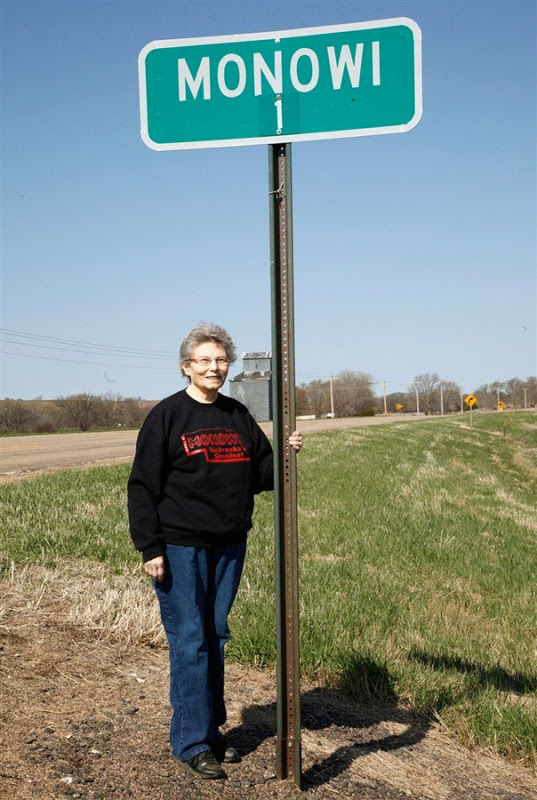The Last Woman Standing: How Elsie Eiler Keeps Monowi, Nebraska (Population: 1) Alive
- Voices Heard

- Mar 28
- 3 min read

A Village of One
In the vast, windswept prairies of northeastern Nebraska, where wheat fields stretch to the horizon and the Niobrara River murmurs nearby, lies a village so small it defies belief: Monowi, population one. Meet Elsie Eiler, a 91-year-old who single-handedly keeps this incorporated municipality—the smallest in the United States—from fading into the dust of history. As mayor, bartender, librarian, and sole resident, Elsie’s story is one of resilience, nostalgia, and a stubborn refusal to let go of a place she’s called home for nearly a century.
The Rise and Fall of Monowi
Monowi wasn’t always a one-woman town. Founded in 1902 and platted in 1903 with the arrival of the Mason, Elkhorn, and Missouri Valley Railroad, it once buzzed with life—150 souls at its peak in the 1930s. Named after a Native American word possibly meaning "flower," the village boasted a school, a church, and a grain elevator. But like many Great Plains towns, Monowi withered as the 20th century marched on. The railroad shut down in 1978, farming mechanized, and young people—including Elsie’s own children—left for brighter lights in Omaha or beyond. By 2000, it was just Elsie and her husband, Rudy. When Rudy died in 2004, Elsie became Monowi’s last stand.
Life at the Heart of Monowi

Today, she lives in a trailer off Highway 12, five miles from South Dakota and 194 miles northwest of Omaha. The town’s sign—“Monowi 1”—greets the curious who venture to Boyd County. Elsie’s days revolve around the Monowi Tavern, a weathered bar and grill she’s run since 1971. Open six days a week (closed Mondays) from 9 a.m. until 9 p.m. or later, it’s a lifeline for locals, hunters, and tourists. Burgers go for $3.50, hot dogs for $1.25, and a cold beer costs $2—prices that haven’t budged much in decades. About 50 visitors trickle in daily, some from nearby Lynch (6.9 miles away), others from as far as the Netherlands, drawn by Monowi’s quirky fame.
Wearing All the Hats

Elsie’s not just pouring drinks. As mayor, she votes for herself in annual elections, files a municipal road plan to secure state funds, and pays herself $500 in yearly taxes—money that keeps three streetlights glowing. She issues her own liquor license and tends to Rudy’s Library, a 5,000-book tribute to her late husband housed in a shed, free for anyone to borrow on the honor system. Around her, Monowi’s past lingers in ruins: an abandoned church, a crumbling grain elevator, and empty homes swallowed by time.
Why She Stays
Why does she stay? Monowi is Elsie’s world—where she grew up on a farm, met Rudy in a one-room schoolhouse, and raised two kids now scattered to Ponca, Arizona, and beyond. “This is home,” she’s said simply, her voice carrying the weight of 91 years. Her five grandchildren and two great-grandchildren visit when they can, but Elsie’s daily company comes from tavern regulars and wide-eyed travelers from all 50 states and over 40 countries.
A Living Legend

The 2010 Census cemented Monowi’s status as a one-person town, though 2020’s count of two was a quirk of Census “noise” for privacy—not a new neighbor. As of March 28, 2025, Elsie remains alone, defying rural America’s slow fade. She’s no recluse—her tavern hums with laughter and stories—but she’s a living relic, preserving a vanishing way of life one hamburger at a time. Monowi isn’t just a dot on the map; it’s a testament to Elsie Eiler’s grit. In a nation of bustling cities, her solitary village whispers a question: What does it mean to hold on when everyone else has let go? For Elsie, the answer is clear—she’s not going anywhere.





Comentarios